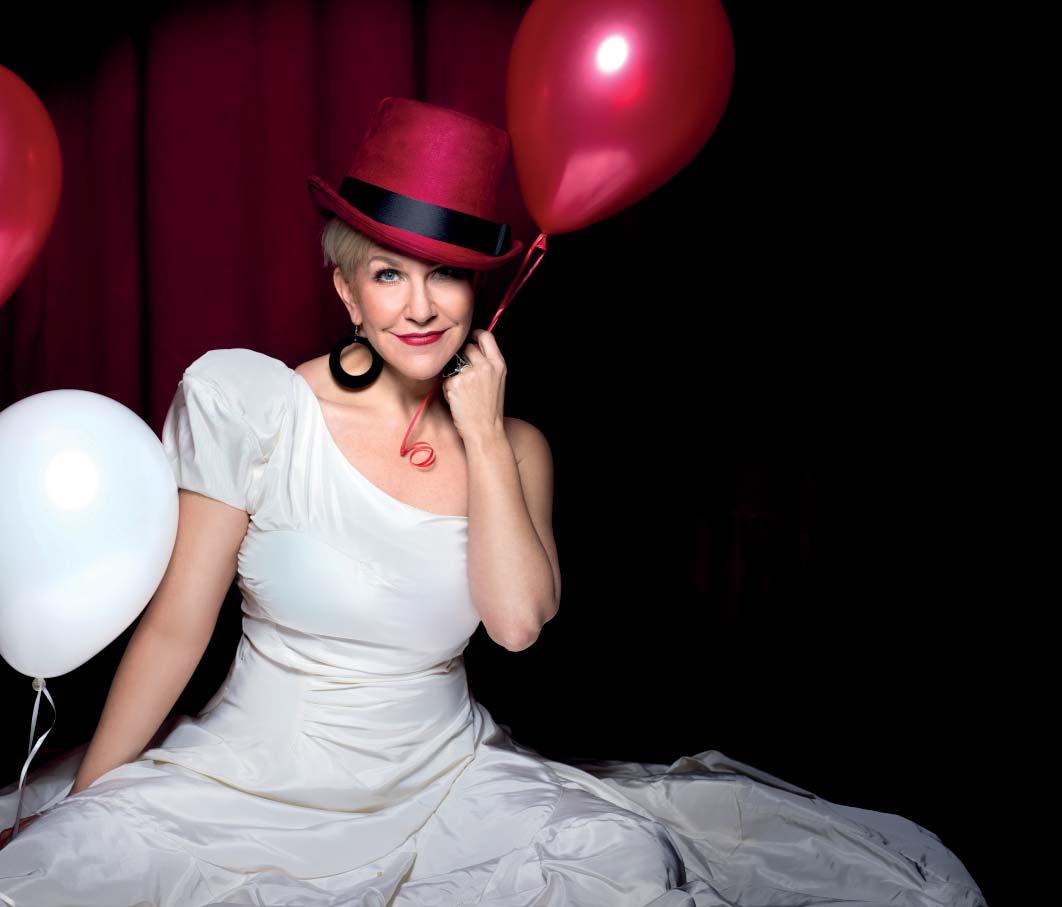
9/3/2024/19.00
Divadlo F. X. Šaldy, Liberec/ F. X. Šalda Theatre, Liberec KONCERTNÍ PROGRAM / CONCERT PROGRAMME
pro
mimořádný Koncert
Special Concert for the Liberec Region
Joyce
Songplay Joyce DiDonato
DiDonato
Koncert se koná pod záštitou prezidenta České republiky pana Petra Pavla.
The concert is held under the auspices of the President of the Czech Republic, Mr. Petr Pavel.
Za laskavé podpory / With kind support:
Partneři Koncertu pro Liberecký kraj / Partners of the Concert for the Liberec Region:
Mediální partneři / Media partners:
Ve spolupráci / In collaboration with:

Vydavatel / Publisher: Bohemorum, s. r. o.
Grafické zpracování / Graphic design: Kristýna a Tomáš Červenkovi
Fotografie / Photos: archiv umělců / artists archive
Editor: Ing. Lucie Johanovská
Korektor / Corrector: Mgr. Jana Kočová
Pořadatel / Organiser: Bohemorum, s.r.o. Žižkova 528/6, 470 01 Česká Lípa
+420 725 843 104, info@lipamusica.cz
www.lipamusica.cz
Joyce DiDonato: Songplay
mimořádný Koncert pro Liberecký kraj / Special Concert for the Liberec Region
Tommaso Giordani (1730–1806): Caro mio ben
Giulio Caccini (1551–1618): Amarilli mia bella
Allie Wrubel (1905–1973): (I’m Afraid) The Masquerade is Over
Allesandro Parisotti (1853–1913) / Salvator Rosa (1615–1673): Se tu m’ami / Star Vicino
Enrique Delfine (1895–1967): Griseta
Jerry Bock (1928–2010): Will He Like Me?
Giuseppe Torelli (1658–1709): Tu lo sai
Duke Ellington (1899–1974): Solitude
Isham Jones (1894–1956): There Is No Greater Love
Benedetto Marcello (1686–1739): Quella fiamma
Giovanni Paisiello (1740–1816): Nel cor più non mi sento (1788)
George Shearing (1919–2011): Lullaby of Birdland (1952)
Zez Confrey (1895–1971): Dizzy Fingers
Gene Scheer (1958): Lean Away (1996)
Richard Rodgers (1902–1979): With a Song in my Heart
Joyce DiDonato – mezzosoprán / mezzo-soprano
Craig Terry – klavír, aranže / piano, arrangements
Gregg August – kontrabas / double bass
Jimmy Madison – perkuse / percussion
Charlie Porter – trubka / trumpet
Lautaro Greco – bandoneon
Pohrajte si s tou písní
Joyce DiDonato
Každý začínající student zpěvu tu scénu zná. Projdete strohými dveřmi, v obavách, zpochybňujete svou vlastní existenci a skeptický učitel vám podá svůj zažloutlý a opotřebovaný výtisk pěvecké bible – 24 italských písní a árií. Obálka, obvykle potrhaná a visící na vlásku, má za cíl ukončit napětí, zda bude osud vašeho hlasu navždy zpečetěn a zařazen mezi „vysoké“, nebo „hluboké“. Přesto cítíte, že to je „ONO“.
A pak se do toho ponoříme, připraveni vyvolat Callasovou i Pavarottiho v jednom, a necháme se strhnout…
Katastrofa. Týden co týden platíme za návrat do mučírny, za ponižující pokus NEbýt tento týden ve svém zpěvu plochými. (Až na to, že minulý týden jsme šli ostře a nemůžeme přijít na to, v čem je rozdíl!) I když je na obálce napsáno „italských“, můžeme se stejně dobře pokoušet zpívat ve svahilštině, a otázky po smyslu naší existence jsou nyní zcela zodpovězeny: jsme ztělesněním naprosté sklíčenosti, zklamáním pro celý lidský druh.
Začínáme ty písně nenávidět za to, jakou jsou výzvou pro naši hudební duši! Jak může být něco, co na stránce vypadá tak neškodně, příčinou takového utrpení? Většina z těchto nebohých skladeb, které se po staletí tak trpělivě nechávají otloukat, aby mnohým z nás umožnily si osvojit základní techniku, nikomu nepatří, jsou uvedeny jako anonymní nebo jsou neprávem připisovány tomu či onomu. Možná se hodí k našemu nehodícímu se zpěvu?
Když se k nim po letech (dobře, dokonce po desetiletích!) vracím, jsem ohromena jejich kouzlem, roztomilostí a nevinností, která vyzařuje z jejich flekatých, zažloutlých stránek. Znovu mě volají zpět, tentokrát však s odvážnou výzvou ke hře, k vymýšlení, k oslavě skvělé písně. Jejich zastřešující téma vyzývavě překlenuje staletí a řadí se k věčnému motivu, o němž si všichni po celá léta zpíváme: LÁSKA.
V tom přichází vždy hravý Craig Terry, který si už dlouho představoval, že se těmto písním dostane jiného zacházení.
Zahrál první akordy Caro mio ben a dostal mě, hned jsme se pustili dál. Z hraní se starými italskými melodiemi se zrodila touha pohrát si také s některými oblíbenými americkými klasikami a nechat se vést láskou a upřímným muzicírováním.
Naše hřiště se s radostí rozšířilo a zahrnulo výjimečnou sestavu instrumentalistů napříč všemi žánry, z nichž každý přinesl svůj specifický zvuk a zkušenost, a přesto jsme všichni splynuli v něco jedinečného, v tento výjimečný projekt. A je to jedno z nejradostnějších muzicírování v mém životě.
Když jsem vás „tady“ viděla naposledy, zpívala jsem na téma války a míru (pozn.: In War & Peace, předchozí projekt Joyce DiDonato) a doufala, že vás na konci přivedu do klidného stavu mysli. Pokud se vám v něm podařilo zůstat, předpokládám, že láska a radost jsou dalšími samozřejmými kroky. Takže uspořádejte s přáteli báječnou staromódní večeři (možná je na místě italská kuchyně?), stiskněte play a veselte se při setkání se starými dobrými standardy, tančete a zpívejte. (Vy si chcete zazpívat!)
A pokud si budete zpívat (no tak, udělejte svému starému učiteli zpěvu radost!), mějte na paměti, co řekl velký Louis
Armstrong:
„Musíte milovat, abyste mohli hrát.“
Play with that Song
by Joyce DiDonato
Every beginning voice student knows the routine: you walk through the austere door – trepidatiously, mind you, and often questioning your very existence – and the skeptical teacher hands you their copy of the yellowed and overly used Singer’s Bible, The 24 Italian Art Songs. The cover, usually torn and hanging by a thread, aims to end the suspense of whether your vocal fate will be forever sealed as belonging to the “high” or “low” categories. Regardless, this feels like “IT”.
And then we dive in, ready to summon both Callas and Pavarotti, all in one, and we let‚ er rip…
Disaster. Week after week we pay to return to the torture chamber for the humiliating attempt to NOT be flat this week. (Except that we went sharp last week, and can’t quite figure out how to split the difference!) Even if it says “Italian” on the cover, we may as well be attempting to sing in Swahili, and the questioning of your existence has now been fully answered: you are the epitome of utter dejection and have single-handedly failed the entire human species.
How we grow to hate these songs for challenging our musical souls! How could something which looks so benign on the page be the cause of such wretched anguish? Most of these poor pieces that have been battered around over the centuries patiently allowing many of us to sort out basic technique through them, have no real ownership – they are listed as anonymous, or wrongly attributed to this one or that one. Perhaps they are a match for our misfit vocals?
So returning to them years later (ok, even decades later!), I’m overwhelmed by the charm and the sweetness and the innocence that exudes from their stained, yellowed pages! They call me back again – but this time with a bold invitation to play, to invent, to celebrate a great song. Their overarching theme defiantly bridges the centuries and lines up with the eternal motif that we’ve all been singing of throughout the years: LOVE.
Enter the ever-playful Craig Terry, who had long envisioned these songs being given a slightly different “treatment”. Upon the first chords of his “Caro mio ben”, I was sold, and we were off and running. Playing with the old Italian melodies gave birth to the desire to also play with some of our favorite American Classics, letting love and heartfelt music-making be our platform.
Our playground has joyously expanded to include an extraordinary gathering of instrumentalists across all genres, each bringing a particular sound and expertise, and yet we’ve all fused into something unique to this singular project. And it has been some of the most joyous music making of my life.
When last I saw you “here”, I was singing on the theme of War & Peace, hoping to lead you to a peaceful state of mind by the end. If you’ve managed to stay there, I suppose love and joy are the next obvious steps: so throw your friends a fabulous, old-fashioned dinner party (perhaps Italian cuisine is in order?), press play, and revel in the joy of meeting some old standards as we frolic away. (You know you want to sing along!)
But if you do sing along, (come on, make your old voice teacher proud!) just keep in mind what the great Louis Armstrong said:
“You got to love to be able to play.”
Co dělá píseň skvělou
Warwick Thompson
Láska je rudá, rudá růže. Láska je nebe, láska je peklo. Přesto celý svět miluje milence, i když je láska slepá.
A tak by výčet klišé mohl pokračovat. Ať už se snažíme lásku vystihnout metaforami, poezií nebo blahopřáními, uspokojivou definici ještě nikdo nenašel. Totéž lze říci o tom, co dělá dobrou píseň. Je to melodie? Slova? Interpret? Kombinace všeho výše uvedeného?
Možná je to pro jejich neuchopitelnou podstatu, že láska a skvělá píseň jdou tak dobře dohromady. Ano, existují písně o nádražích, honosných domech a dvoupatrových autobusech, ale ty jsou ničím v porovnání s mnoha písněmi o radostech a bolestech lásky. Každá z písní, které tu Joyce DiDonato zpívá, se zabývá láskou, ať už z pohledu snoubence z 18. století, nebo dámy z 20. století.
Kdyby však napsání skvělé písně spočívalo jen v tom, že do melodie naházíme pár myšlenek o lásce, pak bychom to, jak se říká, dělali všichni. Musí v tom být také pocit svěžesti a spontánnosti, něco, co udrží píseň při životě bez ohledu na to, kolikrát ji uslyšíte. Tento aspekt velikosti díla je zakořeněn v myšlence, kterou Joyce zkoumá, v myšlence improvizace. V baroku byla improvizace vysoce ceněnou dovedností všech hudebníků, zejména zpěváků. Skladatelé psali typ árií (da capo árie), které opakovaly počáteční úsek hudby jen proto, aby dali zpěvákům možnost jej při opakování ozdobit. Od interpretů se očekávalo, že budou večer co večer předvádět čerstvou invenci a zpěvák, který se odvážil použít stejné ozdoby dvakrát, se dočkal spršky shnilého ovoce. Barokní písně a árie se později staly notovanými a takříkajíc zalitými v aspiku, takže je vzrušující slyšet, jak se vracejí ke svým kořenům způsobem, jakým to činí Joyce.
Improvizace je také základem hitů tzv. Velkého amerického zpěvníku (Great American Songbook). Všechny tyto skladby mají kořeny v jazzových idiomech a jsou napsány tak, aby vybízely interprety k tomu, aby si je upravili podle svého s novými doprovody a překvapivými melodickými zvraty. Kdo by chtěl obětovat Mackieho Messera Lotte Lenyové za Mack the Knife Elly Fitzgeraldové, nebo naopak? (Ella Fitzgeraldová
ve své slavné živé berlínské verzi opravdu zapomněla slova, takže skutečně improvizovala).
Tím se dostáváme k textu. Oddělené od melodie mohou texty často působit klišovitě, banálně nebo dokonce směšně. Kdo by si dokázal představit velikost písně She loves you, yeah, yeah, yeah jen na základě přečtení textu? Jak napsal Stephen Sondheim: „Obvykle je to prostší a plošší text, který se po zhudebnění poeticky vznese. Poezie hudbu nepotřebuje, text ano.“ Aby tedy píseň obstála ve zkoušce časem, měl by být text ideálně jednoduchý a zabývat se univerzálními situacemi (nebo, v žargonu písničkářů, „být přenositelný“). A v ideálním případě by se měl také rýmovat. „Dokonalý rým rázně zařadí slovo a s ním i myšlenku na své místo.“ To je zase Sondheim. Anglicky píšící písničkáře samozřejmě trápí, že jediné použitelné rýmy pro love jsou dove, glove, shove a above.
Způsob, jakým se slova spojují s melodií, je nevýslovně tajemný. Někdy je to vtipné a napodobivé. Händel například často používá vzestupné melodie na slovo vzestup a v písni „With a song in my heart“ můžete slyšet, jak se doprovod rozšiřuje na frázi „as the music swells“. Někdy je však ve slově prostě cítit melodická správnost, kterou nelze vysvětlit ani analyzovat.
Existuje několik dalších bodů, které mají skvělé písně společné. Délka je jedním z nich: většina písní má kolem čtyř minut, protahuje se až na pět. To znamená, že dobrá píseň musí posluchače rychle zaujmout a okamžitě navodit náladu. Bude to veselá, nebo smutná píseň? Ironická, nebo procítěná? Hloupá, nebo drhnoucí? Autor písně to musí dát posluchači okamžitě znát a pak atmosféru umocnit, nebo si pohrát s očekáváním, které nastolil.
A v neposlední řadě je tu interpret. Je úžasné, když slyšíte umělce, který má co říct a který dokáže svou energií píseň proměnit. Piaf zpívající La vie en rose, Bobby McFerrin zpívající Be Happy…, to jsou dokonalé příklady božského tajemství spojení zpěváka a písně. A na tuto notu (slovní hříčka) se vracíme k vynikající umělkyni, která tyto písně také přetváří po svém. Skvělé písně, k tomu skvělá zpěvačka… Co může být lepšího?
What makes a great song
by Warwick Thompson
Love is a red, red rose. Love is heaven, love is hell. Still, all the world loves a lover, even if love is blind.
And so the list of clichés goes on. However much we try to pin love down in metaphors, poetry, and greeting cards, nobody has ever yet found a satisfactory definition. The same might be said of what it is that makes a good song. Is it the melody? The words? The performer? A combination of all the above?
Perhaps it is because of their inherent elusiveness that ’love’ and ’great songs’ make such a good combination. Yes, there are songs about railway stations, stately homes, and double-decker buses – but they are dwarfed by the number of songs about the pleasures and pains of love. Every one of the songs Joyce DiDonato sings here tackles the subject, whether it be from the perspective of an 18th-century swain, or a 20th-century dame.
But if writing a great song were just a case of flinging a few ideas about love onto a tune then – as the saying goes – we’d all be doing it. There also has to be a feeling of freshness and spontaneity, something that keeps the song alive no matter how many times it is heard. This aspect of a work’s greatness is rooted in an idea that Joyce explores here: that of improvisation. In the baroque era improvisation was a highly prized skill for all musicians, but especially for singers. Composers wrote a type of aria (the “da capo” aria) which repeated an initial section of music, simply in order to give singers a chance to embellish it on the repeat. Performers were expected to display fresh invention night after night – and a face full of rotten fruit awaited the singer who dared to use the same tricks twice. Baroque songs and arias later became notated and fixed in aspic, so to speak, so it’s exciting to hear them returned to their roots in the way that Joyce does here.
Improvisation is also at the very heart of the hits of the “Great American Songbook” too. These works are all rooted in the idioms of jazz, and written in such a way as to encourage performers to make them their own with new accompaniments and surprising melodic twists. Who would want to sacrifice Lotte Lenya’s “Mackie Messer” for Ella Fitzgerald’s “Mack the Knife”, for example, or vice versa? (Ella Fitzgerald actually forgot the words in her famous live Berlin version – so she really was improvising.)
Which brings us to the lyrics. Divorced from their melodies, lyrics can often seem clichéd, banal, or even downright ridiculous. Who could possibly imagine the greatness of “She loves you, yeah, yeah, yeah” just from reading the lyrics? As Stephen Sondheim has written, “it’s usually the plainer and flatter lyric that soars poetically when infused with music. Poetry doesn’t need music; lyrics do.” So, for a great song that can stand the test of time, the lyrics should ideally be simple, and deal with universal situations (or, to employ songwriting jargon, “be relatable”). And, ideally, they should rhyme too. “A perfect rhyme snaps the word, and with it the thought, vigorously into place.” That’s Sondheim again. It’s a bugbear for English-language songwriters, of course, that the only useable rhymes for love are dove, glove, shove and above.
There’s an ineffable mystery about the way words link to turns of melody. Sometimes it’s witty and imitative. Handel often employs ascending melodies on the word rise for example, and in “With a song in my heart” you can hear how the accompaniment broadens on the phrase “as the music swells”. But sometimes there’s simply a feeling of melodic rightness to a word that’s impossible to explain or analyse.
There are a few other common points which great songs share. Length is one of these: most songs are about four minutes long, stretching to five. This brevity means that a good song has to hook the listener in quickly, and establish the mood immediately. Is this going to be a happy or sad song? Ironic, or heartfelt? Silly, or scabrous? The songwriter has to let the audience know immediately, and then either intensify the atmosphere or play with the expectations it sets up.
And last, but by no means least, there’s the performer. It’s wonderful when you hear an artist who has something to say, and who can transform song with their energy. Piaf singing “La Vie en rose”, Bobby McFerrin singing “Be Happy…” –they’re perfect examples of the sublime mystery of singermeets-song. And on that note (pun intended) we come back to the very great artist who is making these songs her own too. Great songs, with a great singer – what could be better?
Joyce DiDonato
„Ohromující, radostné umění Joyce DiDonato nám připomíná, že v každé generaci je několik velikánů. Joyce je nejen skvělá, odvážná a inspirující umělkyně, jedna z nejlepších pěvkyň naší doby, ale je také transformující osobností v oblasti umění. Ti, kdo znají její repertoár, žasnou nad jejím nadáním, a ti, kdo o něm nic nevědí, jsou okamžitě zaujati. Joyce zpívá a svět je najednou jasnější. Nutí nás aktivně
naslouchat, slyšet věci nově.“
Mezzosopranistka Joyce DiDonato je držitelkou několika cen Grammy a Olivier Award 2018 za mimořádný úspěch v opeře. Narodila se v americkém Kansasu a své publikum si získala po celém světě. Časopis The New Yorker ji prohlásil za „možná nejmocnější pěvkyni své generace“. Díky hlasu, který podle listu The Times „není o nic méně než dvacetičtyřkarátové zlato“, se Joyce dostala na vrchol v oboru jako umělkyně, producentka a zanícená obhájkyně umění. Díky repertoáru přesahujícímu čtyři století, rozmanité a vysoce ceněné diskografii a progresivním projektům její umění definovalo to, co znamená být pěvkyní v 21. století.
Svou ambiciózní sezónu 2023/2024 Joyce zahájila v Metropolitní opeře, kde vystoupila v roli Sister Helen v nové inscenaci opery Jakea Heggieho Dead Man Walking
(Mrtvý muž přichází). Do newyorské Metropolitní opery se v této sezóně ještě vrátí, aby oživila svou, kritikou oceňovanou Virginii Woolfovou v opeře Hodiny od Kevina Putse. V letošní sezóně Joyce také absolvuje turné k představení Dido & Aeneas se souborem Il Pomo d’Oro a další turné k představení Eden a Grammy oceněnému
Songplay v Asii, Jižní Americe a Evropě. Na koncertech
Joyce vystoupí také se svým domovským Symfonickým
orchestrem Kansas City na sérii abonentních koncertů a také v Istanbulu, Štrasburku a Paříži. Joyce se představí rovněž na recitálech v německé státní opeře v Berlíně, vídeňském Musikvereinu a Carnegie Hall.
Mezi nejvýznamnější vystoupení z poslední doby patří světová premiéra Overstory Toda Machovera v roli Patricie
Westertord v Alice Tully Hall v New Yorku a Seoul Arts Center v Jižní Koreji a rezidenční pobyt u Musikkollegium
Winterthur. Přelomové turné Joyce DiDonato s projektem
Eden zaznamenalo další úspěch při nedávných uvedeních v Evropě a Severní Americe. V červnu 2022 se Joyce připojila k orchestru Metropolitní opery na turné, které zahrnovalo první návštěvu tělesa ve Velké Británii po více než dvaceti letech, vystoupení v Barbicanu, Pařížské filharmonii a Festpielhausu v Baden-Badenu. Její výkon byl podle
Wochenblatt-Reporter „ztělesněním hudební dokonalosti“.
V opeře Joyce DiDonato v poslední době ztvárnila například Agrippinu v Metropolitní opeře a v nové inscenaci v Royal Opera House, Didonu v Trójanech ve Vídeňské státní opeře, Sesta v La clemenza di Tito, Cendrillon nebo Adalgisu v Normě v Metropolitní opeře. Dále uvedla Agrippinu koncertně s Il Pomo d’Oro pod taktovkou Maxima
Emelyanycheva, sestru Helen v Dead Man Walking v Teatro Real Madrid a v londýnském Barbican Centru, Semiramidu v Bavorské státní opeře a v Royal Opera House a Charlotte
Jake Heggie, Gramophone
ve Wertherovi v Royal Opera House v Londýně.
Joyce DiDonato je velmi žádanou koncertní a recitálovou umělkyní, hostovala v Carnegie Hall a v londýnském
Barbican Centre, absolvovala rozsáhlá turné po Spojených státech, Jižní Americe, Evropě a Asii a vystoupila jako hostující sólistka na festivalu BBC Last Night of the Proms.
Mezi její další koncertní úspěchy patří koncerty v Berlínské filharmonii pod vedením sira Simona Rattla, s Orchestre
Révolutionnaire et Romantique pod vedením sira Johna
Eliota Gardinera, Philadelphia Orchestra pod vedením
Yannicka Nézet-Séguina a Orchestra dell’Accademia
Nazionale di Santa Cecilia a National Youth Orchestra USA pod vedením sira Antonia Pappana.
Joyce DiDonato nahrává exkluzivně pro společnosti Warner
Classics/Erato a její rozsáhlá diskografie zahrnuje vysoce ceněné nahrávky jako například Les Troyens (oceněné prestižní cenou Gramophone jako nahrávka roku) a Händelovu Agrippinu (Gramophone jako operní nahrávka roku). Mezi další alba Joyce DiDonato patří Eden, se kterým absolvoval turné po téměř čtyřiceti městech po celém světě, proslulá Winterreise s Yannickem Nézet-Séguinem, Grammy oceněné Songplay, In War & Peace, oceněná Gramophone Award 2017 za nejlepší recitál, Stella di Napoli, Grammy oceněná Diva Divo a Drama Queens. Mezi další ocenění patří Gramophone Artist Award a Recital of the Year a také inaugurační uvedení do síně slávy časopisu Gramophone.
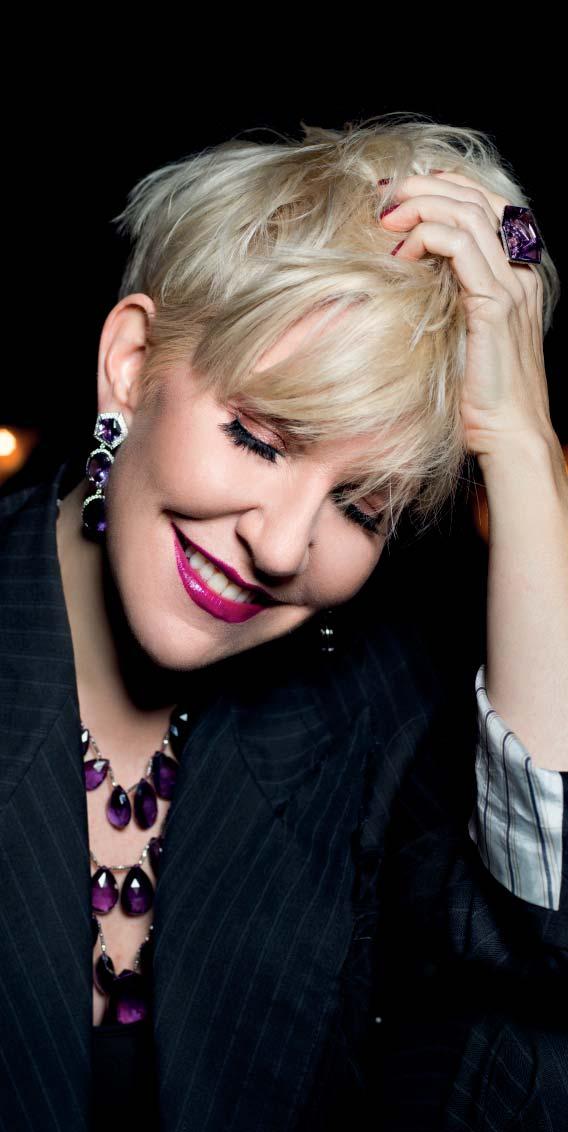
Joyce DiDonato
“The staggering, joyful artistry of Joyce DiDonato reminds us that in any generation there are a few giants. Joyce is not only a great, brave and inspiring artist – one of the finest singers of our time – but she is also a transformative presence in the arts. Those who know her repertoire are in awe of her gifts, and those who know nothing of it are instantly engaged. Joyce sings and the world is suddenly brighter. She compels us to listen actively, to hear things anew.”
Jake Heggie, Gramophone
Multi-Grammy Award winner and 2018 Olivier Award winner for Outstanding Achievement in Opera, Kansas-born Joyce DiDonato entrances audiences across the globe, and has been proclaimed “perhaps the most potent female singer of her generation” by The New Yorker. With a voice “nothing less than 24-carat gold” according to The Times, Joyce has towered to the top of the industry as a performer, a producer, and a fierce advocate for the arts. With a repertoire spanning over four centuries, a varied and highly acclaimed discography, and industry-leading projects, her artistry has defined what it is to be a singer in the 21st century.
Joyce begins her ambitious 2023/24 season by opening The Metropolitan Opera’s season performing her signature
role of Sister Helen in a new production of Jake Heggie’s Dead Man Walking, where she will return later in the season to revive her critically acclaimed “Virginia Woolf” in Kevin Puts’ The Hours. This season also sees Joyce touring Dido & Aeneas with Il Pomo d’Oro, and further tours of Eden and the Grammy Award-winning Songplay in Asia, South America, and Europe. In concert Joyce appears with her hometown Kansas City Symphony Orchestra for a series of subscription concerts, as well as performances in Istanbul, Strasbourg, and Paris. Joyce also performs in recital at Deutsche Staatsoper Berlin, Wiener Musikverein and Carnegie Hall.
Recent highlights include giving the world premiere of Tod Machover’s Overstory Overture in the role of Patricia Westertord at Alice Tully Hall in New York and Seoul Arts Center in South Korea and an in-depth residency at Musikkollegium Winterthur. Joyce’s groundbreaking EDEN Tour has had further success with recent tours in Europe and North America. In June 2022, Joyce joined the Metropolitan Orchestra for a tour that included the orchestra’s first visit to the UK in over 20 years, with performances at The Barbican, Philharmonie de Paris and Festpielhaus Baden-Baden. Her performance was “the embodiment of musical perfection”, according to the Wochenblatt-Reporter.
In opera, Joyce’s recent roles include Agrippina at the Metropolitan Opera and in a new production at the Royal Opera House, Didon in Les Troyens at the Wiener Staatsoper; Sesto in La Clemenza di Tito, Cendrillon and Adalgisa in Norma at the Metropolitan Opera; Agrippina in concert with Il Pomo d’Oro under Maxim Emelyanchev; Sister Helen in Dead Man Walking at the Teatro Real Madrid and London’s Barbican Centre;
Semiramide at the Bavarian State Opera and Royal Opera House, and Charlotte in Werther at the Royal Opera House.
Much in demand on the concert and recital circuit, Joyce has held residencies at Carnegie Hall and at London’s Barbican Centre, toured extensively in the United States, South America, Europe and Asia and appeared as guest soloist at the BBC’s Last Night of the Proms. Other concert highlights include the Berlin Philharmonic under Sir Simon Rattle, Orchestre Révolutionnaire et Romantique under Sir John Eliot Gardiner, the Philadelphia Orchestra under Yannick Nézet-Séguin, and the Accademia Santa Cecilia Orchestra and the National Youth Orchestra USA under Sir Antonio Pappano.
An exclusive recording artist with Warner Classics/Erato, Joyce’s expansive discography includes the highly celebrated Les Troyens (winning Gramophone’s coveted Recording of the Year) and Handel’s Agrippina (Gramophone’s Opera Recording of the Year). Joyce’s other albums include her singular Eden that has toured to nearly 40 cities globally, the acclaimed Winterreise with Yannick Nézet-Séguin, Grammy Award winning Songplay, In War & Peace, the 2017 Best Recital Gramophone Award, Stella di Napoli, Grammy-Award-winning Diva Divo and Drama Queens. Other honours include the Gramophone Artist and Recital of the Year awards, as well as an inaugural inductee into the Gramophone Hall of Fame.

Craig Terry
Klavírista a aranžér, držitel ceny Grammy, pravidelně vystupuje s předními světovými zpěváky a instrumentalisty. V současné době působí jako hudební ředitel The Patrick G. and Shirley W. Ryan Opera Center při Lyrické opeře v Chicagu, kde byl jedenáct sezón asistentem dirigenta. Předtím působil jako asistent dirigenta v Metropolitní opeře poté, co se zapojil do jejího programu Lindemann Young Artist Development Program.
Craig Terry vystupoval s takovými pěvci, jako jsou Jamie Barton, Stephanie Blythe, Christine Brewer, Janai Brugger, Lawrence Brownlee, Nicole Cabell, Sasha Cooke, Eric Cutler, Danielle de Niese, Joyce DiDonato, Giuseppe Filianoti, Renée Fleming, Christine Goerke, Susan Graham, Denyce Graves, Bryan Hymel, Brian Jagde, Joseph Kaiser, Quinn
Kelsey, Kate Lindsey, Amanda Majeski, Ana María Martínez, Eric Owens, Ailyn Perez, Nicholas Phan, Susanna Phillips, Luca Pisaroni, Patricia Racette, Hugh Russell, Bo Skovhus, Garrett Sorenson, Heidi Stober, Christian Van Horn, Amber Wagner, Laura Wilde a Catherine Wyn-Rogers. Jako komorní hráč spolupracoval se členy orchestru Metropolitní opery, orchestru Lyrické opery v Chicagu, orchestru Gewandhaus a smyčcového kvarteta Pro Arte. V poslední době vystoupil na více jak čtyřech desítkách koncertů v Severní Americe, Evropě a Asii. Je uměleckým ředitelem Beyond the Aria, vysoce oceňované série recitálů, která je již devátou vyprodanou sezónou a kterou uvádí Harris Theater ve spolupráci s Ryan Opera Center a Lyric Opera of Chicago.
Craigova diskografie zahrnuje ceněné tituly Diva on Detour s Patricií Racette, As Long As There Are Songs se Stephanií Blythe, Chanson d’avril s Nicole Cabell a French Horn Recital s prvním hornistou Lyrické opery Jonathanem Boenem nebo
Songplay s Joyce DiDonato oceněný Grammy. Vystupoval v mnoha televizních, rozhlasových a streamovaných
pořadech, včetně mnoha vystoupení v pořadech Live from Lincoln Center a Great Performances pro PBS, stejně jako v mnoha pořadech vysílaných na amerických stanicích. Craig pochází z Tullahomy ve státě Tennessee, studoval hudbu na tamní Technologické univerzitě, na Floridské státní univerzitě a na Manhattan School of Music, kde byl žákem renomovaného klavíristy Warrena Jonese. /
Grammy Award winning pianist and arranger enjoys an international career regularly performing with the world’s leading singers and instrumentalists. Currently Craig serves as Music Director of The Patrick G. and Shirley W. Ryan Opera Center at Lyric Opera of Chicago after having served for eleven seasons at Lyric as Assistant Conductor. Previously, he served as Assistant Conductor at the Metropolitan Opera after joining its Lindemann Young Artist Development Program.
Craig has performed with such esteemed vocalists as Jamie Barton, Stephanie Blythe, Christine Brewer, Janai Brugger, Lawrence Brownlee, Nicole Cabell, Sasha Cooke, Eric Cutler, Danielle de Niese, Joyce DiDonato, Giuseppe Filianoti, Renée Fleming, Christine Goerke, Susan Graham,Denyce Graves, Bryan Hymel, Brian Jagde, Joseph Kaiser, Quinn Kelsey, Kate Lindsey, Amanda Majeski, Ana María Martínez, Eric Owens, Ailyn Perez, Nicholas Phan, Susanna Phillips, Luca Pisaroni, Patricia Racette, Hugh Russell, Bo Skovhus, Garrett
Sorenson, Heidi Stober, Christian Van Horn, Amber Wagner, Laura Wilde, and Catherine Wyn-Rogers. He has collaborated as a chamber musician with members of the Metropolitan Opera Orchestra, the Lyric Opera of Chicago Orchestra, the Gewandhaus Orchester, and the Pro Arte String Quartet.
Craig’s upcoming and recent highlights include more than forty concerts in North America, Europe, and Asia.
He is Artistic Director of “Beyond the Aria,” a highly acclaimed recital series now in its ninth sold-out season, presented by the Harris Theater in collaboration with the Ryan Opera Center and Lyric Opera of Chicago.
Craig’s discography includes “Diva on Detour” with Patricia Racette, “As Long As There Are Songs” with Stephanie Blythe, “Chanson d’Avril” with Nicole Cabell, and “French Horn Recital” with Lyric Opera principal horn Jonathan Boen and “Songplay,” with Joyce DiDonato, that received the 2020 Grammy award for Best Classical Solo Vocal Album.
He has appeared on numerous television, radio, and streaming programs, including multiple appearances on both “Live from Lincoln Center” and “Great Performances” for PBS, as well as on many programs broadcast on NBC, ABC, and CBS. Craig hails from Tullahoma, Tennessee, studied music at Tennessee Technological University, Florida State University and the Manhattan School of Music, where he was a student of renowned pianist Warren Jones.

Gregg August
Basista a skladatel Gregg August se pohybuje v oblasti klasiky, avantgardy, jazzu a latin jazzu, což z něj činí jednoho z nejvšestrannějších hudebníků na současné scéně. Je přidruženým členem komorního orchestru Orpheus a bývalým prvním basistou La Orquestra Ciutat de Barcelona a Brooklynské filharmonie. Jako jazzový basista je Gregg členem JD Allen Tria a Afro-Latin Jazz Orchestra Artura O’Farrilla.
V roce 2020 vydal album Dialogues on Race a získal za něj nominaci na cenu Grammy v kategorii Nejlepší velký jazzový soubor. Rozšířená suita pro 22 hudebníků a vypravěče integruje básně a vytváří hudební rozhovory, jejichž cílem je podpořit povědomí a porozumění otázkám týkajících se rasových vztahů ve Spojených státech.
Gregg získal dvě hlavní ceny Mezinárodní společnosti basistů v soutěži David Walter Composers Competition 2020. Zkomponoval také mnoho celovečerních koncertních děl, včetně Variací na Pérotinovo téma, které byly objednány a premiérovány Orpheus Chamber Orchestra v roce 2021.
Vystupoval a/nebo nahrával s Branfordem Marsalisem, Ornettem Colemanem, Chickem Coreou, Rayem Barrettem, Newyorskou filharmonií, Stevem Reichem a The Bang on a Can All Stars. Gregg působí na Newyorské univerzitě, Manhattan School of Music, Williams College a na letním hudebním festivalu Bang on a Can v MASS MoCA.
Bassist and composer Gregg August spans the classical, avant-garde, jazz and Latin jazz worlds making him one of the most versatilemusicians on the scene today. He is an Associate member of the Orpheus Chamber Orchestra as well as the former Principal Bass of La Orquestra Ciutat de Barcelona and the Brooklyn Philharmonic. As a jazz bassist Gregg is a member of the JD Allen Trio and Arturo O’Farrill’s Afro-Latin Jazz Orchestra.
In 2020 he released his album Dialogues on Race and received a Grammy nomination in the Best Large Jazz Ensemble category. Anextended suite for 22 musicians and narrator, the work integrates poemsto create musical conversations intended to foster awareness and understanding on the issues surrounding race relations in the United States.
Gregg was awarded two Grand Prizes by the International Society of Bassists for the 2020 David Walter Composers Competition. He has also composed many full length concert works, including “Variations on a Theme by Pérotin” which was commissioned and premiered by the Orpheus Chamber Orchestra in 2021.
He has performed and/or recorded with Branford Marsalis, Ornette Coleman, Chick Corea, Ray Barretto, the New York Philharmonic, Steve Reich, and The Bang on a Can All Stars. Gregg is on faculty at New York University, the Manhattan School of Music, Williams College and the Bang on a Can Summer Music Festival at MASS MoCA.
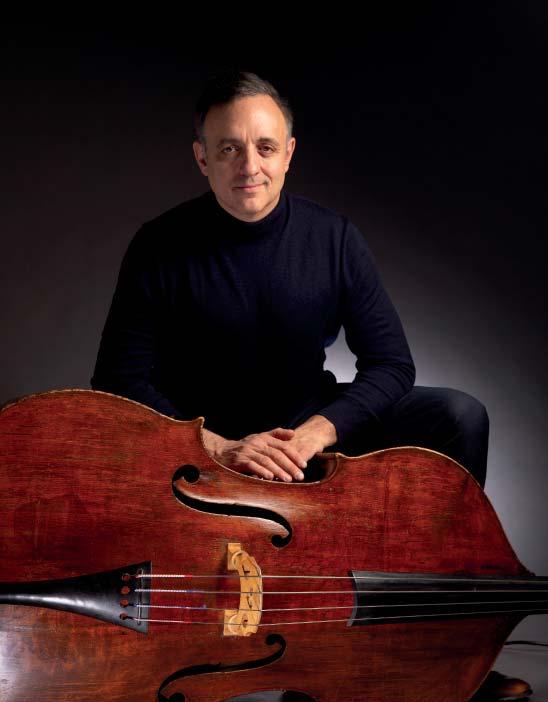
Jimmy Madison
Pokud bychom měli vyjmenovat všechny skupiny, se kterými Jimmy Madison od svého příchodu do New Yorku spolupracoval, bylo by to jako „kdo je kdo v moderní hudbě“.
S hudbou začal ve čtyřech letech a od dvanácti let se jazzu věnuje profesionálně. V devatenácti letech odešel ze Cincinnati k miamskému trumpetistovi Donu Goldiemu a po vystoupení ve světoznámém newyorském klubu Metropole ho rychle angažoval kapelník Lionel Hampton. Od té doby vystupoval a nahrával s tak různorodými hudebními stylisty, jako jsou Marion McPartland, Bobby Hackett, James Brown, Gerry Mulligan, Nina Simone, Al Cohn, Rahsaan Roland Kirk, Joe Farrell, George Benson, Richie Havens, Stan Getz, Hubert Laws, Lee Konitz, Anita O’Day, Art Farmer, John Lewis, Ray Baretto, Shirley MacLaine, Maceo Parker, Ron Carter, Jon Hendricks, The Joffrey Ballet, Chet Baker, David Berger, Quincy Jones, Toots Theilmans a The Duke Ellington Orchestra, abychom jmenovali jen některé.
Zdokonalování dovedností potřebných k doprovodu všech různých typů hudby, které výše uvedení umělci hrají nebo zpívají, Jimmymu umožnilo bohatě ocenit veškerou hudbu. Jeho práce učitele toto uznání ještě rozšířila.
Ačkoli Jimmy několikrát vedl skupiny, včetně osmnáctičlenného big bandu se skladatelem Angelem Rangelovem, je znám především jako sideman, který se již dlouho objevuje na jazzových scénách po celém světě. Gary Giddens z Village Voice jednou v recenzi vystoupení Red Rodney Quintetu v newyorském klubu Blue Note označil Jimmyho za „nejlépe střežené tajemství v jazzu“.
If you were to list all the groups Jimmy Madison has worked with since his arrival in New York, it would read like a Who’s Who of modern music.
A musician at four years, and a professional at age twelve, he has been playing jazz all his life. Leaving Cincinnati to join Miami trumpeter Don Goldie at age 19, he was quickly hired by bandleader Lionel Hampton after a gig at New York’s world-famous Metropole. Since then, he has performed and recorded with such diverse musical stylists as Marion McPartland, Bobby Hackett, James Brown, Gerry Mulligan, Nina Simone, Al Cohn, Rahsaan Roland Kirk, Joe Farrell, George Benson, Richie Havens, Stan Getz, Hubert Laws ,Lee Konitz, Anita O’Day, Art Farmer, John Lewis, Ray Baretto, Shirley MacLaine, Maceo Parker, Ron Carter, Jon Hendricks, The Joffrey Ballet, Chet Baker, David Berger, Quincy Jones, Toots Theilmans and The Duke Ellington Orchestra, to name only a few.
Honing the skills needed to accompany all the various types of music played or sung or danced by the artists listed above has given Jimmy a rich appreciation for all music. His work as a teacher/clinician has broadened that appreciation even more.
Although Jimmy has led groups on several occasions, including an 18-piece big band with composer Angel Rangelov, he is mostly known as a sideman, having long been featured at jazz venues internationally. Once, in a review of the Red Rodney Quintet’s appearance at NYC’s Blue Note, Gary Giddens of the Village Voice called Jimmy “the best kept secret in jazz.”
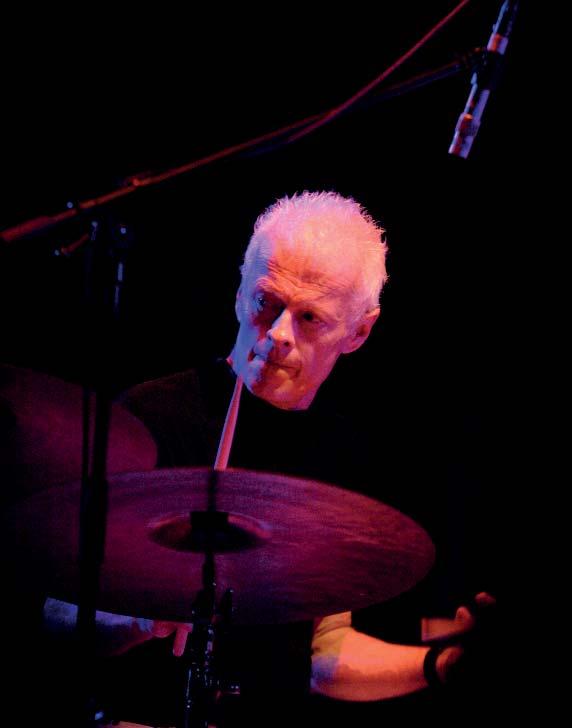
Charlie Porter
Multižánrový trumpetista a skladatel Charlie Porter, držitel ceny Grammy, se poprvé prosadil na newyorské jazzové scéně koncem 90. let a současně studoval hru na klasickou trubku na Juilliard School pod vedením slavného trumpetisty a skladatele Wyntona Marsalise.
Ačkoli Porter nahrál mnoho alb, jako protagonista vydal dosud tři alba, která sklidila vysoké uznání. V roce 2024 vydá Charlie další čtyři alba původní hudby, včetně sólového projektu klasické hudby, který bude obsahovat zcela nové skladby pro trubku.
Porter cestuje po světě jako doprovodný hráč a kapelník v jazzu i jako klasický sólista a komorní hudebník, v posledních dvaceti letech vystupoval a nahrával s mnoha významnými hudebníky a skupinami, od jazzových velikánů, jako jsou Joe Zawinul, Winard Harper, Mike Longo, Paquito
D’Rivera, Ira Sullivan, Aaron Diehl, Mike Holober, Jimmy Greene, Jay Thomas, David Berger, Charli Persip a Chuck Israels, až po umělce klasické hudby, jako jsou Simone Dinnerstein, Sarah Chang a Joyce DiDonato, stejně jako velikáni world-music Goran Bregović, Marcel Khalife a Kim Duksoo a mnoho dalších. Je také zakládajícím členem na Grammy nominovaného elektroakustického souboru
Absolute Ensemble, který vede Kristjan Järvi. Za spolupráci na crossoverovém albu Songplay operní hvězdy Joyce DiDonato získal Charlie cenu Grammy za rok 2019.
Charlie je držitelem diplomů z The Juilliard School a Manhattan School of Music v oboru jazzové a klasické interpretace. Byl také stipendistou Fulbrightova programu na Pařížské konzervatoři. Kromě mnoha ocenění, která má na svém kontě, byl Charlie prvním trumpetistou, který získal 1. místo v klasické i jazzové divizi Národní trumpetové soutěže. Je autorem skladeb na objednávku Chamber Music America a Doris Duke Foundation. V současné době působí jako odborný asistent hry na trubku na New York University.
Grammy Award-winning multi-genre trumpeter and composer Charlie Porter first cut his teeth on the New York jazz scene in the late ’90s, while simultaneously studying classical trumpet performance at The Juilliard School under the tutelage of famed trumpeter and composer Wynton Marsalis.
Though he has recorded many albums as a side-musician, Porter has released three albums to date, as a leader, that have garnered high praise. In 2024 Charlie will be releasing four more albums of original music, including a solo classical project, featuring all new works for trumpet.
Porter has toured the world as a side-man and band-leader in jazz and also as a classical soloist and chamber musician, performing and recording with many notable musicians and groups over the last twenty years ranging from jazz greats including Joe Zawinul, Winard Harper, Mike Longo, Paquito D’Rivera, Ira Sullivan, Aaron Diehl, Mike Holober, Jimmy Greene, Jay Thomas, David Berger, Charli Persip and Chuck Israels to classical artists such as Simone Dinnerstein, Sarah Chang, and Joyce DiDonato as well as world-music greats Goran Bregović, Marcel Khalife, and Kim Duksoo, among many others. He is also a founding member of the grammy-nominated electro-acoustic Absolute Ensemble, directed by Kristjan Jarvi. Charlie’s collaboration on opera star Joyce DiDonato’s crossover album “Songplay” earned him a Grammy Award for 2019.
Charlie holds degrees from The Juilliard School and Manhattan School of music in jazz and classical performance. He was also a Fulbright Scholar at the Paris Conservatory. Among many awards to his credit, Charlie was the first trumpeter to win 1st place in both the classical and jazz divisions of the National Trumpet Competition. As a composer, he has been commissioned by Chamber Music America and the Doris Duke Foundation. Porter is currently an adjunct professor of trumpet at New York University.
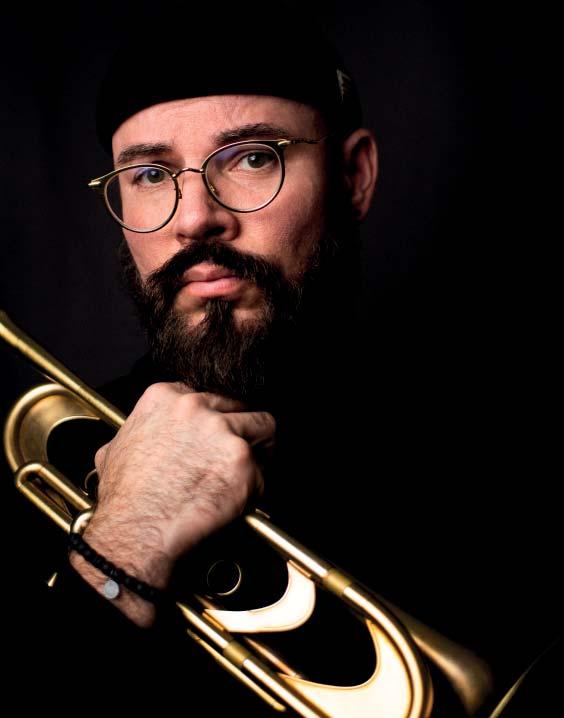
Lautaro Greco
Lautaro Greco studoval hru na bandoneon u svého otce
Pabla Greca, hru na klavír u Manuela Massoneho a Nicoláse
Ledesmy a skladbu u Gabriela Senanese. Je profesorem klavíru na Hudební konzervatoři Astora Piazzolly v Buenos Aires a hrál jako sólista v orchestrech Piazzolla, Orquesta Sinfónica Nacional (Argentina), Orquesta Libertador San Martín, Orquesta Nuevo Mundo (Chile) a Orquesta del Festival Piazzolla (C. C. Konex) ad.
Je členem Orquesta Nacional de Música Argentina Juan de Dios Filiberto.
Může se pyšnit těmito oceněními: Grammy za CD Songplay
Joyce DiDonato, Latin Grammy za Revolucionario Quinteto de la Fundación Astor Piazzolla, Grammy za Tangos Rubéna Bladese a Gardel award 2009 za Vida, Pasión y Tango Sexteto Mayor.
Působil v Quinteto de la Fundación Astor Piazzolla, Sexteto
Mayor, Orquesta de Leopoldo Federico a Selección Nacional de Tango. Společně se svým bratrem Emilianem Grecem
řídí soubor Grecos Tango Septeto a je hudebním ředitelem
taneční skupiny Tango Lovers. Lautaro Greco byl také
členem tanečních souborů tanga, jako jsou Forever Tango, Tango Pasión a Tango Argentino.
Nahrával a účastnil se koncertů po boku hudebníků jako
Joyce DiDonato, Marisa Monte, Rubén Blades, Mercedes Sosa, Hugo Fattoruso, Toquinho, Ricardo Montaner, Fito Páez, Elena Roger, Suarez Paz, José Colángelo a Osvaldo
Berlingieri, Ernesto Baffa, Víctor Lavallén, Rubén Juárez, Raúl Lavié, María Graña y Guillermo Fernández a další.
Lautaro Greco studied bandoneon with his father Pablo Greco, piano with the Masters Manuel Massone and Nicolás Ledesma y Composition with Gabriel Senanes. He is Superior Professor of Piano by „Astor Piazzolla Music Conservatory of Buenos Aires“ and played as soloist in the following orchestras: Orquesta Nacional de Música Argentina “Juan de Dios Filiberto”, Orquesta Sinfónica Nacional (Argentina), Orquesta Libertador San Martín, Orquesta “Nuevo Mundo”(Chile) and Orquesta del “Festival Piazzolla” (C.C. Konex), among others. He is member of Orquesta Nacional de Música Argentina “Juan de Dios Filiberto”.
He won the following awards: Grammy for the CD “Songplay” of Joyce DiDonato, Latin Grammy for “Revolucionario” of Quinteto de la Fundación Astor Piazzolla, Grammy for “Tangos” of Rubén Blades y Gardel award 2009 for „Vida, Pasión y Tango“ of Sexteto Mayor.
He took part in Quinteto de la Fundación Astor Piazzolla, Sexteto Mayor, Orquesta de Leopoldo Federico and Selección Nacional de Tango. He co-directs “Grecos Tango Septeto” next to his brother Emiliano Greco and he is musical director of the tango dance company „Tango Lovers“. He was part of the following tango dance companies: Forever Tango, Tango Pasión and Tango Argentino, among others.
He recorded and took part in concerts alongside musicians like: Joyce DiDonato, Marisa Monte, Rubén Blades, Mercedes Sosa, Hugo Fattoruso, Toquinho, Ricardo Montaner, Fito Páez, Elena Roger, Suarez Paz, José Colángelo and Osvaldo Berlingieri, Ernesto Baffa, Víctor Lavallén, Rubén Juárez, Raúl Lavié, María Graña y Guillermo Fernández, among others.
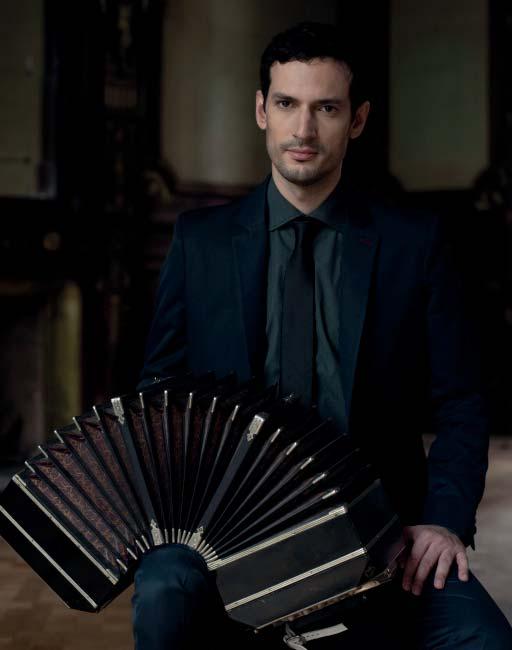
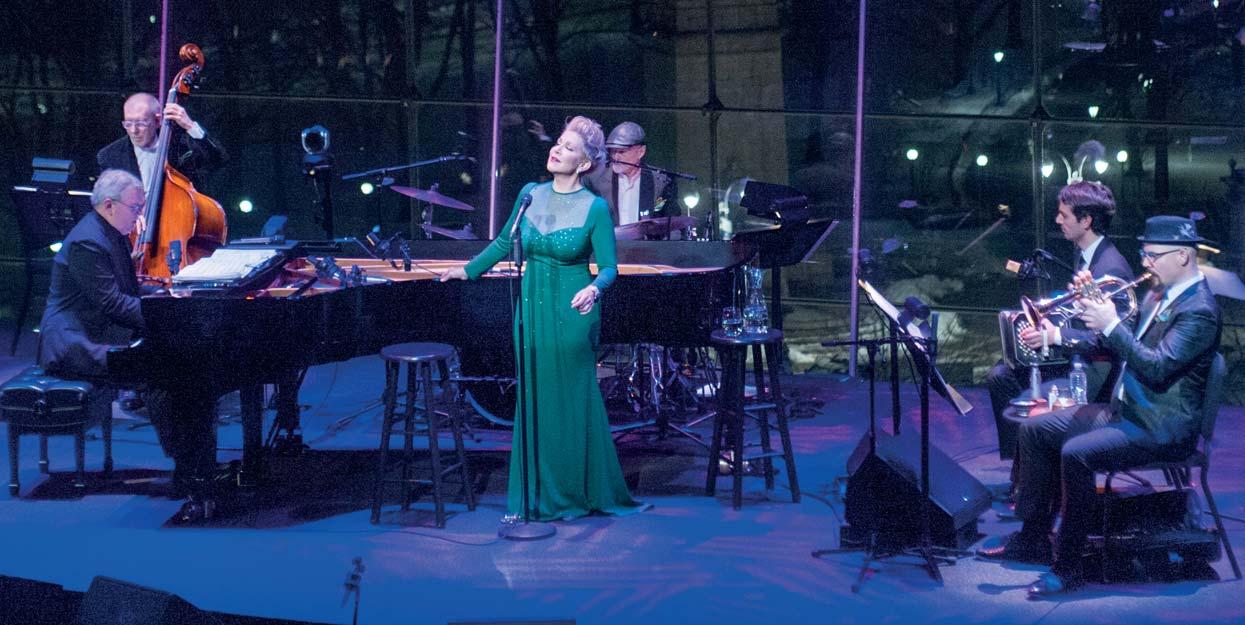


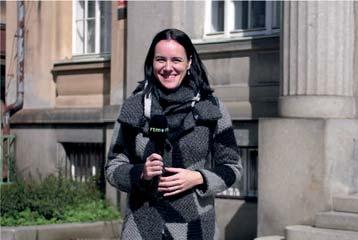

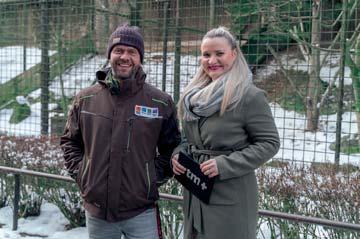

@tvrtmplus
Joyce DiDonato a Craig Terry (klavír), Chuck Israels (kontrabas), Jimmy Madison (bicí), Lautaro Greco (bandoneon), Charlie Porter (trubka) 5. března 2019 v Lincolnově centru v New Yorku.
Největší regionální televize v Libereckém kraji! www.rtmplus.cz
NA OBĚŽNOU DRÁHU
dosáhneme, když naše stožáry postavíme na sebe. Jejich celková výška je přes 550 km.
Každý metr pravidelně ošetřujeme.

Zajišťujeme spolehlivý provoz, rozvoj a bezpečnost české přenosové soustavy. Jsme společnost ČEPS.









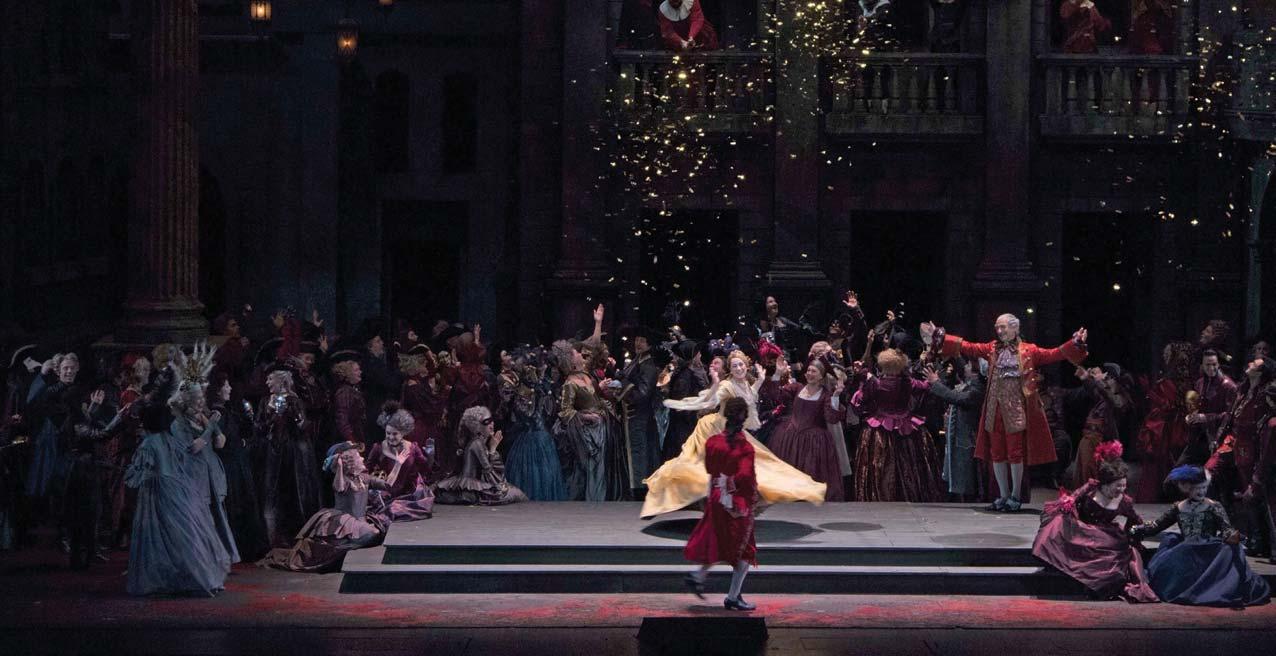


ROMEO A JULIE



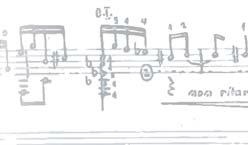
NA AEROFILMS.CZ
GOUNOD:
VÍCE
CH.
6/9–14/11/2024
„Souznění nejen hudební“ umělecký garant Jiří Pavlica
@lipamusica
23. ročník
Předprodej vstupenek od 6. května.

of Excellence
The Sound
www.bechstein.com























